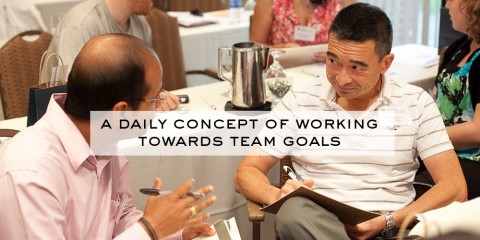There is no 1 best style or behavior trait for leadership of teams. When it comes to who a person is, we believe that they play to their strengths and supply the team with what is needed to achieve the goals.

Research does point to three leadership areas where there are right and wrong directions.
1. Timing of leader interventions
Teams are more receptive to interventions at certain parts of their work more than others.
Beneficial times include:
- when the team is 1st created,
- when it reaches a natural break in its work,
- when it has completed a goal or reached the end of a performance period.
When a team is focusing on work and has already gained commitment to achieve the tasks is a bad time for leadership intervention.
2. Coaching is unlikely to have lasting benefits if a team’s performance situation is unfavorable
- when team members have little idea why they are on this team and what they are supposed to be doing,
- if the team is set up poorly,
- if the surrounding organization undermines rather than enables teamwork.
With the above conditions, the team leader would do better addressing these problems rather than spend time coaching the team with the intention to help the team work better together in what is a fundamentally broken team system.
3. Whatever occurs when the team is created – when members 1st meet and begin to orient themselves to each other and the work – has enduring effects
One of the most useful interventions a leader can make is to get the team off to a good start. This works because start-up is rarely ever crisis-time, time and energy are available to support teambuilding and start functioning as a task-performing unit. When the team is off to a good start chances are that it will have some reserve energy when a crisis occurs.
Team Development by Mike Cardus
Team development happens when people learn together. Learning is a differentiator. The organization that has learning teams may be able to understand, learn, apply, re-learn and make rapid changes that competitors cannot understand.

